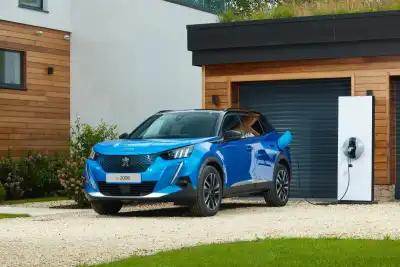Recent analysis indicates that electric vehicle (EV) drivers in the UK are utilising their cars nearly as much as those with traditional petrol and diesel models. Contrary to the perception that electric cars cannot serve as direct substitutes for combustion engine vehicles due to concerns about battery ranges and charging infrastructure, data from used car information provider Cap hpi suggests that EV owners are challenging these doubts.
Cap hpi's examination of used car data reveals that, in 2023, the average EV owner covered 8,292 miles, only 743 miles less than drivers of petrol and diesel models of 9,035 miles. Notably, experts conducting the research highlight a trend where EV owners are progressively increasing their mileage, while drivers of conventional cars with combustion engines seem to be using their vehicles less frequently.
The analysis, encompassing approximately 17.4 million cars on UK roads from 2014 to the present day, sought to establish average annual mileage figures. The data reflects a shift in EV usage patterns, with advancements in battery technology, increased mileage ranges, and enhancements in charging infrastructure contributing to the growing confidence of EV drivers.
The overall analysis indicates a shift in average mileage for all cars, from 11,381 miles per year at the beginning of 2014 to 9,654 miles per year up to February 2024, marking a decrease of 1,727 miles on average. By the end of 2023, excluding EVs, the average UK vehicle mileage was recorded at 9,035 miles per year. Consequently, the average annual mileage of petrol and diesel cars is only 9% higher than that of EVs.
Dylan Setterfield, Head of Forecast Strategy at Cap hpi, observes that the convergence between EVs and internal combustion engine (ICE) vehicles is becoming evident. He stated, 'The figures from the past decade indicate that drivers drove fewer miles per year overall from 2014 until the beginning of the pandemic.
'The data indicates that there is now a clear convergence emerging between EVs and ICE [internal combustion engine] vehicles.
'EVs now have much longer ranges, and the charge point network is constantly improving, but we're also seeing that EV drivers have much more faith in their vehicles and have become more adept at planning their journeys and managing longer trips.'
He mentioned that the significant drop in average mileage during the pandemic and subsequent lockdowns has been consistently rising. However, the overall average still hovers approximately 1,000 miles per year lower than it was at the conclusion of 2019.
He added, 'The pandemic undoubtedly altered the way drivers use their cars forever,' he said.
Interestingly, a recent study by Zenith found that 48% of EV owners in the UK maintain a petrol or diesel vehicle as a backup for longer trips, indicating a lack of confidence in relying solely on electric cars and charging networks for distances exceeding 60 miles.
In summary, the data suggests a notable evolution in EV usage patterns, debunking the perception that electric cars are impractical for regular and long-distance driving. With advancements in technology and growing driver confidence, the convergence between EVs and traditional vehicles is becoming more evident, challenging preconceived notions about the practicality of electric transportation.




